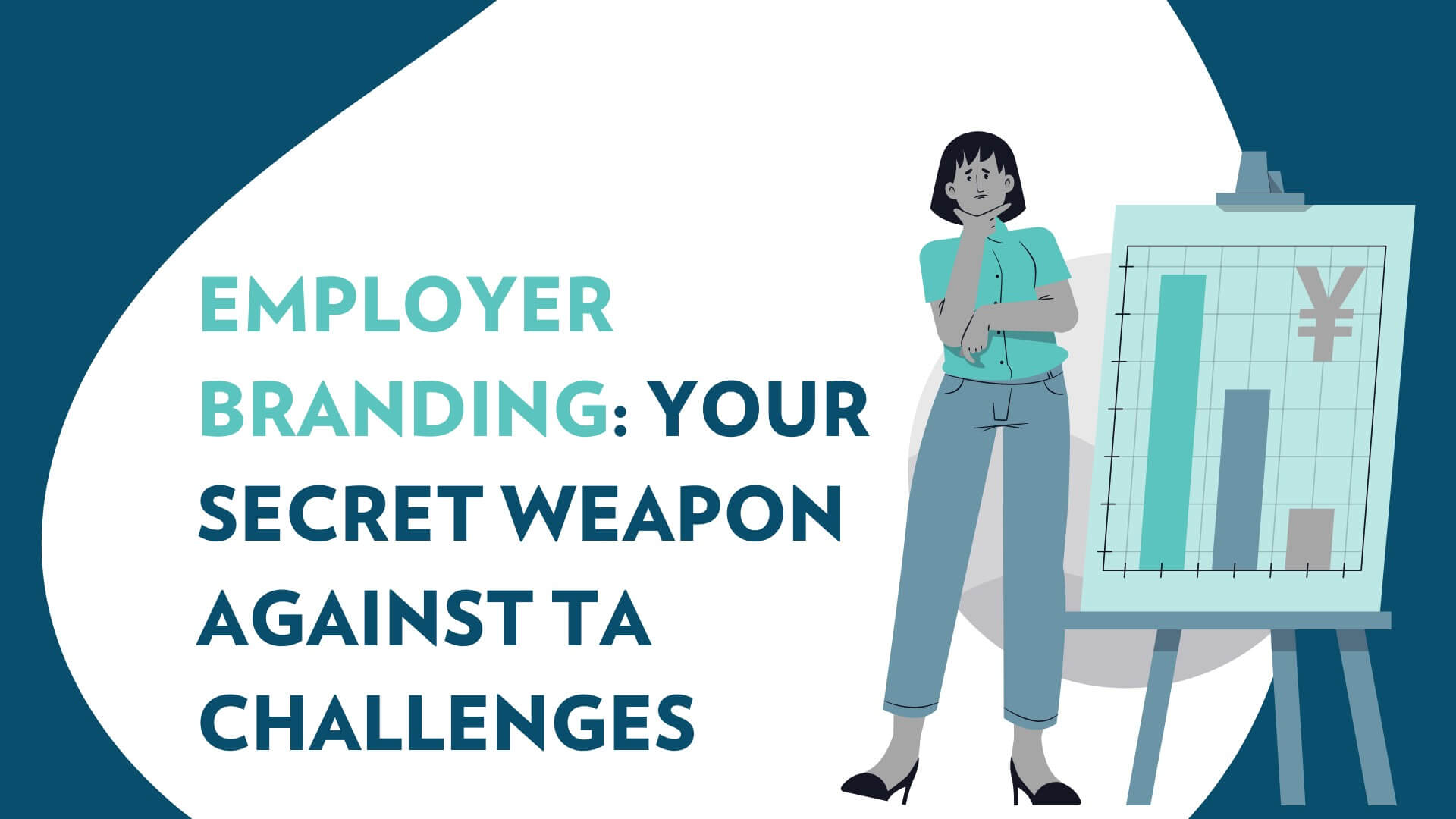Improving candidate experience leads to effective talent acquisition
If there’s one thing that COVID-19 brought to the fore, it’s the candidate experience when searching for a new role. The pandemic created global uncertainty around the economy and its moving parts. Millions of people became candidates again. For some, it was the first time they’d been job searching in decades! Grappling with neverending application processes quickly lost its appeal. Now, improving candidate experience is key to attracting high-quality candidates to a vacancy.
As a candidate, it’s challenging to articulate your worth to a potential employer over and over again. What can you as the potential employer say about the support you offer candidates when they’re applying for your vacancies? Going forward, the efficiency and effectiveness of your recruitment process are going to hinge on not just what you offer the candidate, but how you offer it to them. Improving candidate experience should be an integral part of your post-COVID talent acquisition efforts.
A bad candidate experience is a bad brand experience
The response most people get to their earnest job application is akin to a field full of crickets. Not much. And the second most common response is an impersonal notification from the job board that the candidate’s application is unlikely to progress.
The latter is closure, at least, but the candidate isn’t able to contact the organisation and ask for feedback. They’re blocked by a nameless, faceless obstruction and it is incredibly disheartening. When feedback is rare, candidates dissect the messages they do receive. Candidates discuss these messages with friends and family and focus on how the feedback was delivered.
If the feedback they get doesn’t align with the way you’ve portrayed your organisation online, the candidate becomes disillusioned and walks away with a negative perception of your brand. With a bad taste in their mouths, candidates might share their negative experience more widely and do significant damage to your employer branding.
And they wouldn’t be totally unfounded either. Improving candidate experience doesn’t take that much “more” from the organisation, and goes a lot further than one might expect at first glance.
Recruitment marketing tips for improving candidate experience
Candidate care is much more than merely responding to a candidate’s application. It should be part of your recruitment marketing strategy before you even place the first job ad. Many traditional recruitment processes don’t align with candidate preferences anymore that organisations can easily change so that they’re actively improving candidate experience.
Quick, accessible application processes always win
Think about the process and requirements you set for your candidates. Do you require candidates to get through a series of screening questions, or have them answer several lengthy questions on your site before they can submit their resume? Do you ask candidates to submit a tailored cover letter right out of the gate, or can they come back and amend their application later? What about portals? Requiring candidates to create an account and log in before they can even apply is a bit much, surely.
The more you can simplify the application process, the more likely candidates are to apply. It’s increasingly important to think about the experience from the candidate’s perspective, particularly in such a competitive market. If your role is easier and more enjoyable to apply for, you’ll attract more candidates than your competitors. Similarly, your shortlisting & selection process must consider the needs and wants of the candidates.
Some simple steps to take include:
- Ask short, relevant questions in the application process.
- Save more in-depth questions for the interview stage.
- Use more accessible candidate management systems, like a branded webpage that candidates can enter their details into with ease.
- Feedback always beats no feedback, even if it’s negative. Keep the candidate in the loop throughout the shortlisting & selection process.
Job boards tailor themselves to candidate experience
If that isn’t enough to motivate a change in the application process, consider this: job board algorithms no longer focus on the recruiter’s experience with their platform, they focus on improving candidate experience. Job boards now aim to show more relevant job ads to their users so that they can make their applications faster.
How an organisation’s ad shows up on job boards is different, too. Previously, having insider knowledge on the best keywords and job titles to use was enough to attract candidates to a new role. Now, job board algorithms adjust to a candidate’s current search criteria, their past search history, and the resume they’ve uploaded to the platform. An organisation’s vacancy is ranked higher or lower in the candidate’s search results based on all these factors.
So, the recruitment marketing strategy must incorporate improving candidate experience if there’s any hope of attracting great talent. Think about how the organisation will best target and engage the best talent strategically to ensure their ads are being seen by the “right” people.
Improving candidate experience with automation
When hiring, particularly in a traditional HR manager role, it’s difficult to find the time to nurture every aspect of the recruitment process. They have to wear many different hats, so to speak, and there’s scarcely time to wear them all and get anything worthwhile done. It makes sense that certain parts of the recruitment processes are neglected in favour of tasks that explicitly meet KPIs, like shortlisting & selection. Many people still think of automation and AI as an inhuman entity that replaces humans in the workplace. But, if the human element of recruitment is already missing on account of being time-poor, isn’t automation the answer to improving candidate experience?
Reframing automation
Let’s move away from the negative language around AI, for example, as being “inhuman”, and start instead to think about how automation and AI support the recruitment process. Automation carves out space for the hiring manager to achieve more through their connection with candidates.
For example, everyone knows that it’s imperative to let a candidate know when their application is unsuccessful. Yet, many hiring managers hedge their job ads with statements like, “If you don’t hear from us within two weeks, consider yourself unsuccessful.” The expectation already is that the HR manager won’t have enough time to care for the candidates. This doesn’t feel good for anyone involved.
Instead, automated tools are improving candidate experience and empowering hiring managers to drive strategic goals as well. If one organisation cares more for the candidate pool than another, who are the candidates most likely to engage with further?
For example, whether or not a candidate’s application is successful, organisations can improve their employer brand by sending candidates through a journey, engaging the candidates about their brand and values. Now, your candidates have an opinion about your brand. Think about it: you’d never try to sell a product or promotion with just one email, right?
Good automation frees up time for recruiters to do their best work. Call the candidates, discuss their experiences, and take the time to do something more considered. Communication always trumps no communication, and automation empowers an organisation to communicate more and more often without pouring more and more time into the project.
Improving candidate experience in the recruitment process
Setting up systems to support candidate care is vital to consistent talent acquisition. There are several tools available to help organisations take care of their candidates and get the best results out of the recruitment process. Whether the organisation has a full team of recruiters or a single HR officer who’s run off their feet trying to attract talent to their vacancy, robust talent acquisition software helps organisations of every shape and size to care for their candidates. For help streamlining your candidate experience and taking better care of the talent you do attract, contact Scout Talent Group to talk about our recruitment software and services offering.




